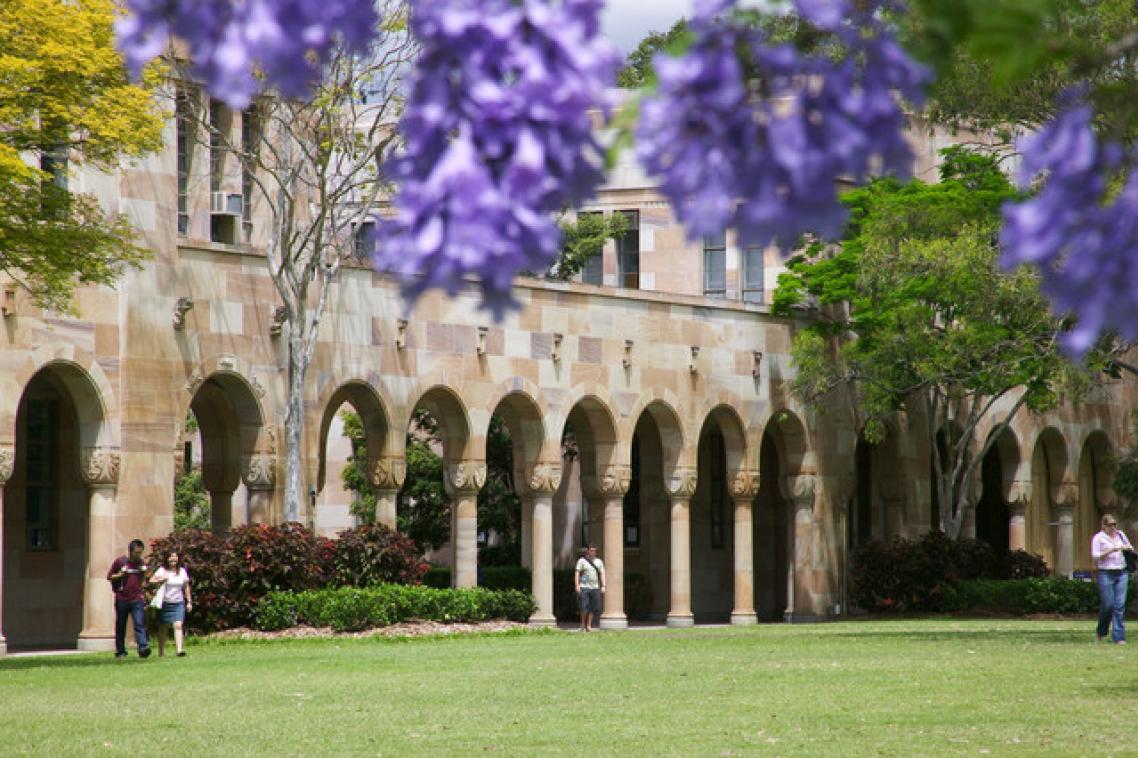New UQ communications head sees changes to university learning
Life-long learning due to the constant need to up-date knowledge is becoming a major issue for universities, according to an international communications expert.
UQ’s new Head of the School of Journalism and Communication Professor Jan Servaes
said universities would have to address these issues in terms of structuring curricula and learning environments.
“International research findings have indicated that advances in technology are having a major world-wide impact on communication and leading to new forms of literacy and learning.”
As President of the European Consortium for Communications Research (ECCR), Professor Servaes has spent most of his academic life researching the role and impact of communication.
He said recent research for the ECCR had indicated that advancements in technology have had a major effect on how people understand the world and communicate with it.
“Technology is leading to new forms of literacy,” he said. “Young people tend to communicate with computers very differently to adults. Adults have grown into computer use in a rational, literal way but young people are more interactive and communicate with technology more associatively.”
Professor Servaes said he was looking forward to working with staff at the School to address the communications challenges of the future.
“Any kind of institution today needs to establish a niche, a speciality, in a competitive environment,” he said. “I would like us to establish something which is challenging and is not yet covered by other communications programs. Something that’s a bit out of the mainstream and deals with social and critical issues.”
Professor Servaes has undertaken research, development and advisory work around the world and has also authored a communications handbook for UNESCO.
“The book is an inventory of good and bad communication practices and identifies why some projects were successful and others were failures. It will be used by United Nations agencies in staff induction courses and is a very good starting point for teaching and learning exercises.”
As well as conducting various research projects for the European Union over the past decade Professor Servaes has also taught at universities worldwide, including Belgium, The Netherlands, the USA and Thailand.
He said plans for the UQ School included attracting more international students, upgrading teaching and research performance and encouraging inter-disciplinary cooperation with other social science fields.
“I would like to see further promotion of the multimedia newsroom, negotiate a free-flow of information between students and outside groups and develop short-term communication training courses for UNESCO,” Professor Servaes said.
Media: For further information contact Professor Jan Servaes (telephone 07 3365 6115, 0400 012 584 or email j.servaes@uq.edu.au) or Lynda Flower, UQ Communications (telephone 07 3365 2339).
Related articles

UQ professor joins WHO advisory group on alcohol and drug use

Crown-of-thorns control boosts coral growth in a warming world
Media contact
UQ Communications
communications@uq.edu.au
+61 429 056 139
